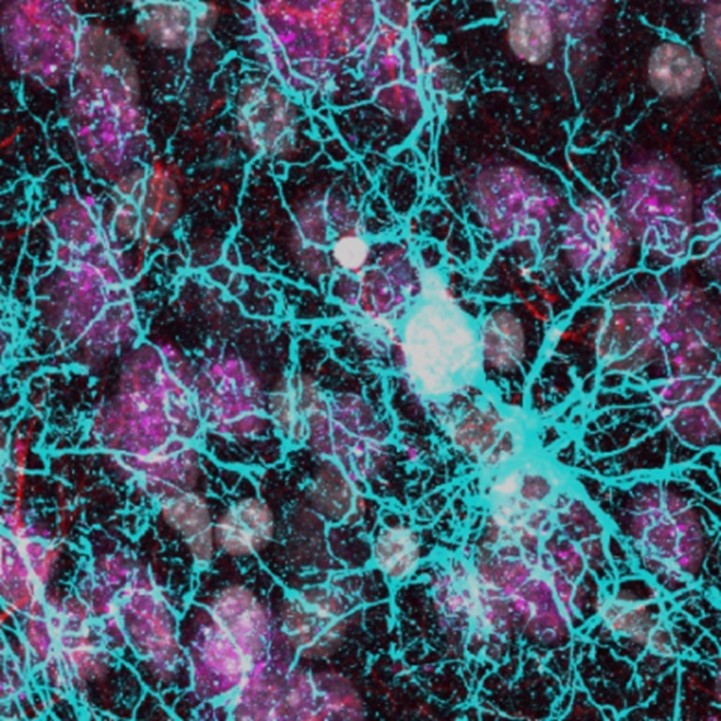Autophagy (cell recycling system) is a double-edged sword in brain stroke
A new study reveals that the recycling system responsible to sustain cells' health is detrimental for the brain's garbage men in charge of removing neuronal debris
This study, published in the journal Autophagy, shows that potentiating the process of cellular recycling, named Autophagy, interferes with the function of the brain’s professional phagocytes, the cells that detect, engulf and degrade dead neurons, named Microglia. Both processes, autophagy and phagocytosis, compete for the cell’s “stomachs”, the Lysosomes, that degrade the ingested material.

During brain stroke, this study shows, microglia is stressed from the lack of oxygen and nutrients, and starts a protective autophagy response that depletes the lysosomes and disrupts the phagocytosis of dead neurons.
“Previously, it was thought that only neurons died during stroke”, explains Dr. Amanda Sierra, who has supervised the study at the ACHUCARRO. “Now we know that microglia can also die, and that those who survive are seriously damaged and cannot eliminate neuronal debris”.
Dr. Ainhoa Plaza Zabala, Autophagy expert from the UPV/EHU, who has co-directed the study, adds: “Phagocytosis is disrupted because microglia potentiates autophagy to protect themselves from the stroke-induced damage, and use all the lysosomes to regenerate their organelles”.
The study also shows that drug most frequently used to promote Autophagy, rapamycin, induces microglial death in some circumstances. “Potentiating autophagy is not beneficial for microglia”, adds Dr. Sierra. “The potential therapeutic benefits of promoting autophagy are widely discussed, but microglia seem capable to control their own optimal autophagy level”, explains Dr. Plaza-Zabala.
The study was performed by Predoctoral researchers Sol Beccari and Virginia Sierra-Torre, using brain samples from mice and monkeys, cell cultures, and high resolution imaging techniques to visualize lysosomes, autophagy and phagocytosis.
The research was carried out in collaboration with researchers from the Karolinska Institute (Sweden), the University of Massachusetts (EEUU), the University of Lyon (France), the Unviersity of Caen (France), the Oviedo University (Spain) and the Centro de Investigaciones Biológicas Margarita Salas (Madrid).
The team at ACHUCARRO and the University of the Basque Country believe it is necessary to deploy new therapies that recover phagocytosis efficiency to treat brain stroke patients.
Dr. Sierra concluded: “Preventing neuronal death is not sufficient for stroke patients. We must also promote microglial phagocytosis to accelerate the clearing of the damaged brain tissue“. Dr. Plaza-Zabala adds: “This study is the first step to develop more sophisticated approaches to modulate microglial autophagy to treat stroke patients”.
- “Microglial phagocytosis dysfunction in stroke is driven by energy depletion and induction of autophagy” (Autophagy, Jan 2023)
https://doi.org/10.1080/15548627.2023.2165313
